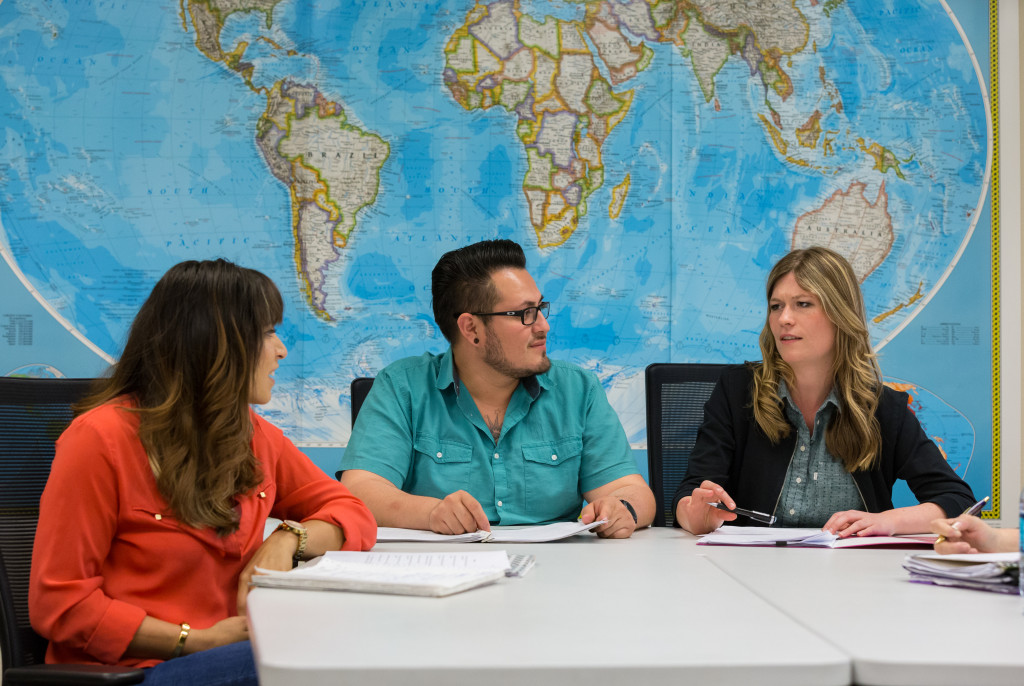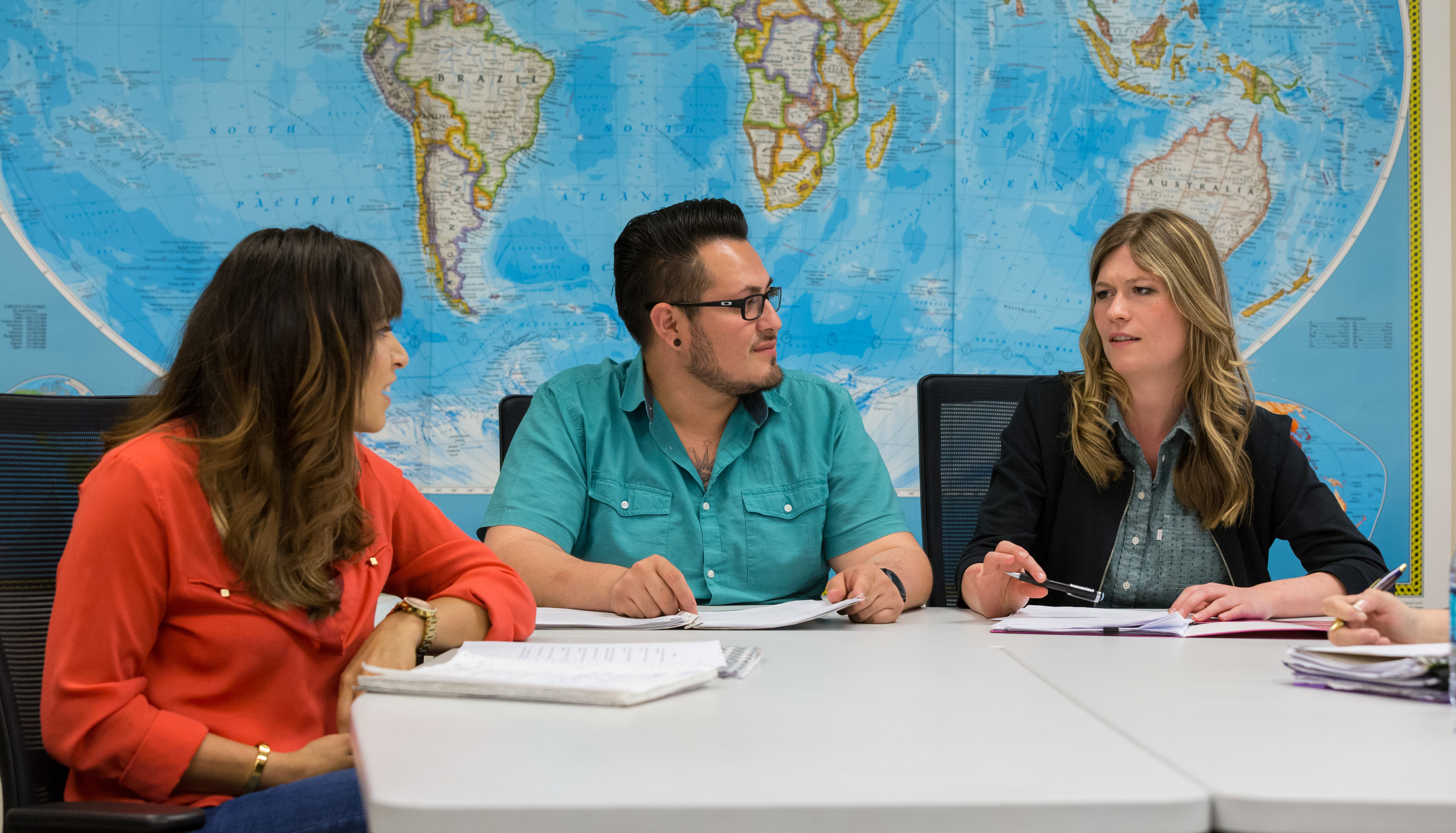
[pull_quote_right]
College of St. Scholastica at Mesa Community College
Limited to social work majors with other undergraduate, graduate and doctorate degree programs available online
Classes begin in Mesa Sept. 8
(877) 287-8753 (social work only) or (623) 694-0984
[/pull_quote_right][dropcap type=”2″]A[/dropcap] one-stop shop for quality higher education in social work is on the way.
An agreement between a small, four-year Catholic college and the area’s largest public community college among a 10-campus system will come to life when its first cohort of students begins class in a few weeks. The College of St. Scholastica forged a partnership with Mesa Community College to strengthen its Arizona presence and offer continuity for social work students interested in pursuing a four-year degree.
MCC’s district system has a 40-some member Maricopa University Partnership list, but this marks only the second time that the transfer is within the same campus. It’s the third such model for the College of St. Scholastica, a 103-year-old independent Catholic Benedictine college based in Minnesota.
The Catholic college sought out the partnership based on MCC’s successful social work program and St. Scholastica’s desire to take its programming to a fast-growing area. The colleges signed a five-year agreement.
The fall semester officially begins for St. Scholastica Sept. 8 with classes nearing capacity. Eleven students got an orientation of sorts last spring. They had already been accepted to the Catholic college and opted to enroll in a free, two-credit course: Competency of Compassion.
“The idea was to provide an opportunity for students to check us out and see how our program actually works as well as get a preview of the ‘flipped classroom’ learning model we use,” said Maria Laughner, St. Scholastica’s regional director in Arizona. In the flipped model, instruction is learner-centered and collaborative.
Some MCC classes use the flipped model, more so in nursing, but it depends on the instructor. Laughner expects St. Scholastica students to embrace the learning style and topic, since she said the subject of compassion blends nationally recognized social work ethics with Catholic Social Teaching and the Benedictine values that St. Scholastica holds dear, she said.
Cornelia Best intended the Competency of Compassion class to boost her grade in a related MCC course. It was presented as extra credit. Best now finds herself in the first cohort of St. Scholastica’s social work students in Arizona.
“I’m so excited,” Best told The Catholic Sun hours after finishing finals for some summer coursework. She already had her books ordered for upper division courses. “Social work is definitely something that I’m passionate about. I really feel that it’s the career for me.”
She likes the broadness the social work field offers in terms of careers and, as a native of Sweden, finds herself drawn to working with refugees, victims of sex trafficking or international social work. Those interests were piqued following the Competency of Compassion class, which brought in local guest speakers active in those fields. Reading assignments and classroom discussion balanced out the syllabus.
“It opened our eyes a little bit. It was very, very personal and fruitful,” Best said.
She sees the campus location, cohort model and hybrid learning model that combines online classes with in-person meetings — the system that attracts working adults — as added benefits.
Laughner, St. Scholastica’s regional director, said the Catholic college understands its students as adults, many of whom work full time, have families and other life experiences. That’s why classes are discussion-based rather than lecture-based. It also hones soft skills and people skills crucial to social work, she said.
“We want to create an opportunity for real learning to happen, not memorization,” Laughner said.
Roughly 140 students will enter into a 20-member social work cohort this fall at St. Scholastica’s five campuses, including in Mesa. The field has a 19 percent growth rate nationally over the next 10 years.
Students will graduate with at least 570 hours of field experience, which is well beyond what the Council of Social Work Education requires. The field experience is in two different areas of work. An Aug. 21 training session for field instruction will bring together organizations interested in field-partnering with St. Scholastica and offer continuing education credits.
“Having the College of St. Scholastica on the MCC campus helps to fulfill our college goal of providing an accessible education for students and enabling them to become successful citizens in Arizona’s society and economy,” Annalisa Alvrus, chair of the MCC Cultural Science department, said in a statement.
The college also offers Arizona students a Bachelor of Science and Master of Science degrees in Health Information Management and a Bachelor of Science in Nursing. St. Scholastica’s health information management program has been a national leader since it began in 1934 as the first such degree program in the nation.






